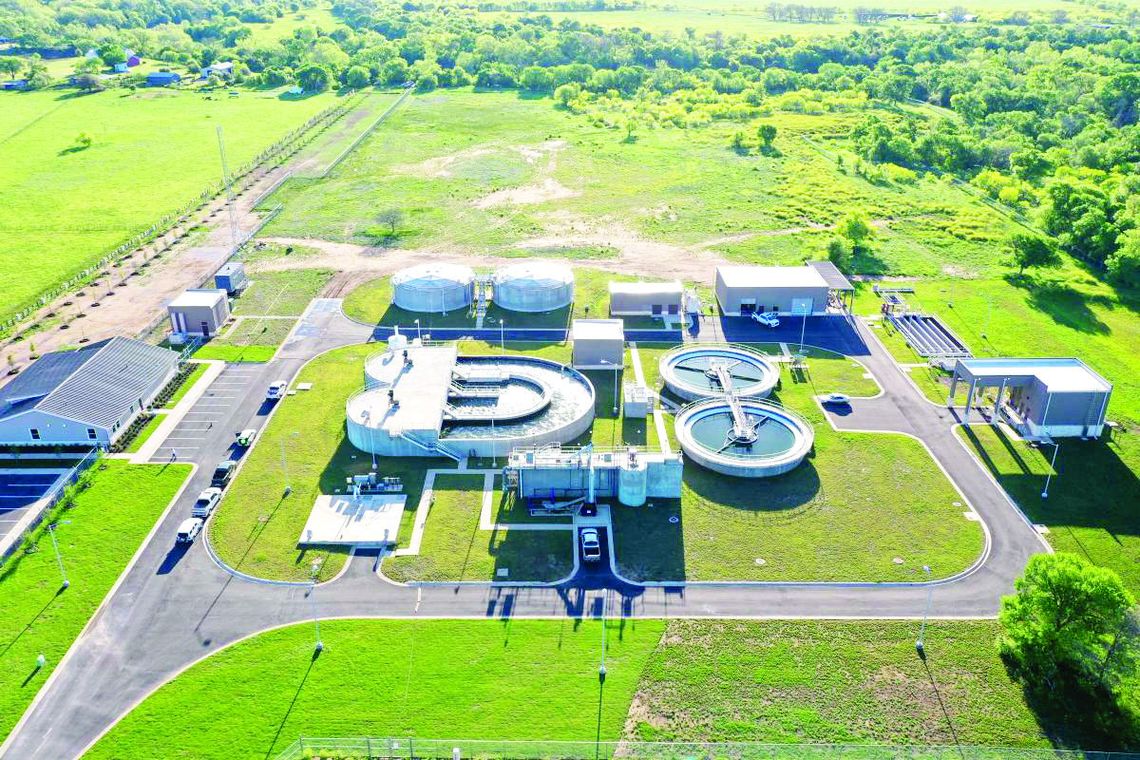Bastrop proposes wastewater reservation fee for developers
BASTROP — In an effort to ensure future wastewater capacity is reserved for serious developments, City Council is introducing a new ordinance that would allow developers to pay a fee to secure wastewater service ahead of construction.
The proposal — set for final approval April 8 on the council’s consent agenda — would give developers the option to reserve wastewater capacity by paying a monthly reservation fee per living unit equivalent, referred to as an LUE, until the units are connected to the city’s wastewater system.
“For those larger developments, like a Valverde, like a Pearl River, they’re going to be very interested in this because usually the amount of LUEs that they’re going to encumber out of the capacity that’s available at the plant is significant,” said Viviana Andres, assistant to the city manager. “It reduces their risk.”
City Manager Sylvia Carrillo-Trevino said the ordinance is designed to balance developer flexibility with long-term infrastructure planning.
“Sometimes things don’t manifest, so as opposed to us continuing to plan as if a development is coming and expending more engineering dollars, we can have them pay a fee that reserves their space, essentially, in the line,” Carrillo-Trevino added.
How it works
The fee would be $50 per LUE per month, according to the council.
This means a development requiring 2,006 LUEs, such as the proposed Valverde project, would pay more than $100,000 per month — adding over $1.2 million annually to the project’s cost.
An LUE represents the average daily wastewater usage of a single- family household — nationally about 235 gallons per day, but in Bastrop, the average exceeds 300 gallons per day, city officials said.
Businesses, multi-family properties and industrial users are assigned conversion factors to calculate their projected wastewater output.
Why it matters
According to the council, Bastrop’s two wastewater treatment plants are nearing capacity thresholds that require action by the Texas Commission on Environmental Quality.
The TCEQ mandates that cities begin designing a new facility at 75% capacity and start construction by 90%.
“If a proposed development puts us over those thresholds, we can’t guarantee wastewater service,” Andres said. “This policy gives us a way to plan ahead, and gives developers a way to lock in their access early in the process.”
Incentives and safeguards
To discourage delayed projects, the city said the ordinance includes a twoyear deadline. If construction hasn’t begun within that time, the reservation is canceled, and the fee is nonrefundable.
However, developers can earn credits if they act quickly — the entire fee may be credited to utility development fees if construction begins within one year, and half may be credited if construction begins in year two. The credit applies only to active construction portions of the project.
In addition to the reservation fee, developers will also be required to fund a feasibility study to determine how their project aligns with the city’s available capacity.
.png)






